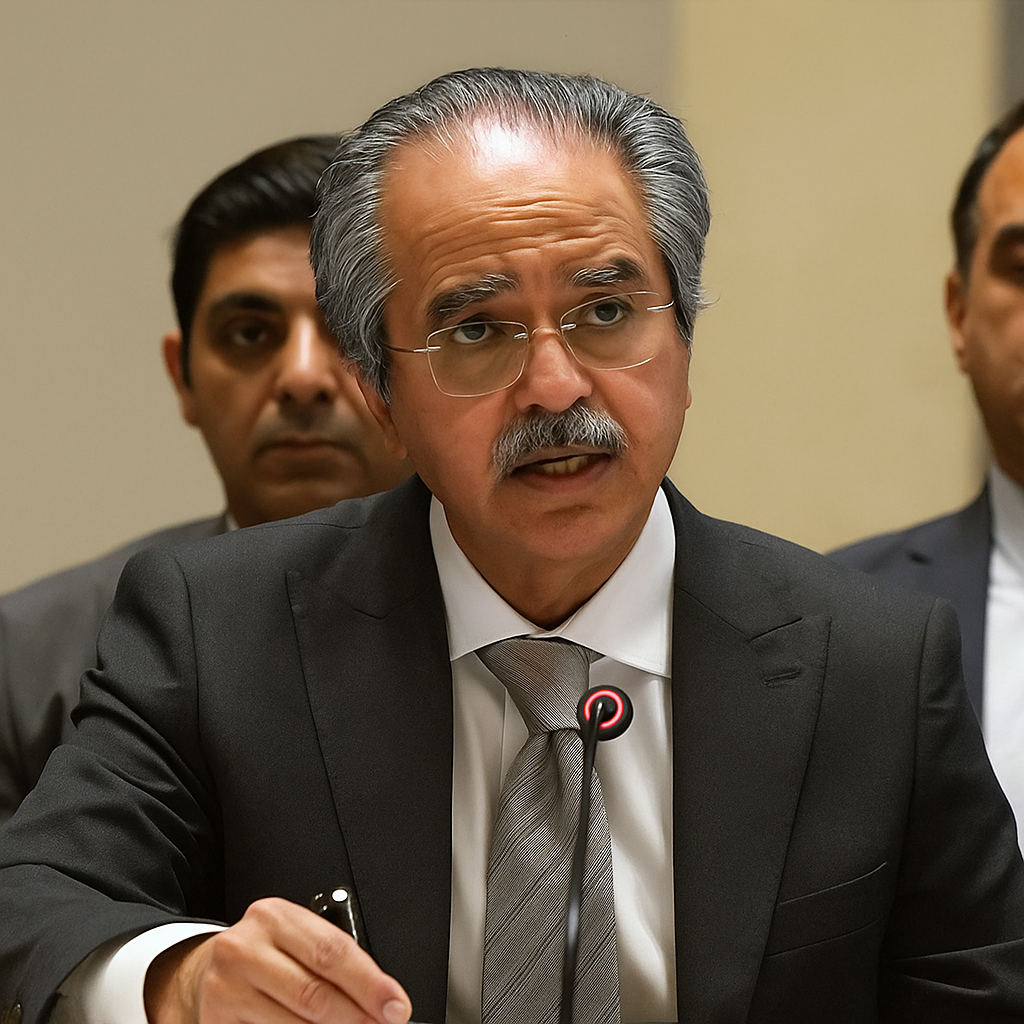Terrorism from Afghan Soil: Pakistan Tells UN It’s the Gravest Threat to Regional Security
New York: Pakistan has once again raised alarm at the global stage, telling the United Nations Security Council (UNSC) that terrorism from Afghan soil poses the gravest threat to its national security, regional stability, and the future of development in South and Central Asia.
Speaking during the UNSC debate on Afghanistan, Pakistan’s Permanent Representative, Munir Akram, painted a grim picture of the escalating violence inside Pakistan, much of it traced back to militant sanctuaries across the border. He urged the global community to act decisively before the crisis spins further out of control.
A Growing Threat from Across the Border
Pakistan’s envoy made it clear: terrorism from Afghan soil is not just a bilateral problem but a regional and global concern.
- In the first seven months of 2025, Pakistan witnessed a 65% surge in terrorist incidents compared to the same period last year.
- The Tehreek-e-Taliban Pakistan (TTP) and ISIS-K are the most active groups, launching cross-border attacks on both civilians and security forces.
- Despite repeated warnings and intelligence sharing with Kabul, terrorist networks continue to regroup, recruit, and operate freely.
Akram emphasized that the Afghan interim government has a responsibility under international law not to allow its territory to be used for terrorism. However, the evidence suggests these commitments are being ignored.
Human and Economic Toll of Terrorism
The statistics reflect the devastating human impact:
- In 2024, Pakistan suffered over 1,000 deaths due to terrorism.
- By mid-2025, nearly 800 casualties had already been reported, with the year on track to be one of the deadliest in recent memory.
- Regions like Khyber Pakhtunkhwa and Balochistan have been worst affected, with bombings, ambushes, and suicide attacks targeting both security personnel and ordinary citizens.
The economic costs are equally high:
- Billions are diverted each year into counter-terrorism operations and border management.
- Foreign investment suffers as instability overshadows opportunities.
- Key development projects remain vulnerable to disruption by militant activity.
A Longstanding Challenge
Terrorism from Afghan soil is not a new phenomenon.
- After the US invasion of Afghanistan in 2001, many militants fled into Pakistan, sparking years of insurgency.
- Following the US withdrawal in 2021, the situation reversed, with Pakistan claiming that TTP fighters now find refuge in Afghanistan under the new Taliban regime.
- Despite promises from Kabul not to allow their soil to be used against neighbors, Pakistan argues that militant safe havens are thriving once again.
For Islamabad, this is part of a long cycle where instability in Afghanistan spills over into Pakistan, creating a security nightmare that has lasted for more than two decades.
Pakistan’s Demands at the UN
At the UNSC, Munir Akram laid out a roadmap for dealing with the crisis:
- Pressure on Afghan Authorities
- The international community must press the Afghan interim government to dismantle terrorist sanctuaries and take visible action against the TTP and ISIS-K.
- Enhanced Border Management
- Pakistan’s 2,600 km-long border with Afghanistan is porous and hard to control. The global community should support Pakistan with surveillance technology, fencing, and monitoring systems.
- Counter-Terror Financing
- Terrorist networks rely on cross-border smuggling, extortion, and foreign funding. International cooperation is essential to block these lifelines.
Akram warned that if these steps are not taken, terrorism from Afghan soil will continue to destabilize not just Pakistan, but the wider region.
Impact on Regional Development
The issue goes beyond security. Pakistan stressed that terrorism directly undermines regional peace and economic cooperation:
- Energy Projects: Initiatives like the TAPI gas pipeline (Turkmenistan-Afghanistan-Pakistan-India) are threatened by instability.
- Trade Corridors: Cross-border trade routes remain under constant threat from militant activity.
- CPEC and Connectivity Plans: The China-Pakistan Economic Corridor (CPEC) and other Central Asia–South Asia projects face delays due to security concerns.
For Pakistan, eliminating terrorism from Afghan soil is not just a matter of safety — it is key to unlocking economic prosperity for the entire region.
The Afghan Dimension
While criticizing Afghanistan’s lack of action, Pakistan also acknowledged the humanitarian crisis facing ordinary Afghans.
- Millions in Afghanistan live under poverty, food insecurity, and lack of basic services.
- Pakistan urged the global community to balance humanitarian aid with security demands, ensuring that international assistance does not indirectly empower militant networks.
- Akram underlined that peace in Afghanistan is a prerequisite for peace in Pakistan and beyond.
Regional and International Stakes
Pakistan’s warning comes at a critical time:
- Central Asian states also fear the spread of ISIS-K into their territories.
- China, Iran, and Russia have expressed concerns over militancy spilling beyond Afghan borders.
- The United States and European nations, though no longer directly involved in Afghanistan, worry that unchecked groups could once again turn Afghanistan into a global terror hub.
Pakistan’s message at the UN was clear: terrorism from Afghan soil is not just its own problem — it is a global security challenge.
Pakistan’s Past Efforts
To highlight its commitment, Pakistan pointed to its own sacrifices:
- More than 80,000 Pakistani lives have been lost in the fight against terrorism since 2001.
- The country has spent over $150 billion on counter-terrorism measures and operations.
- Military campaigns like Zarb-e-Azb and Radd-ul-Fasaad dismantled domestic militant structures, but cross-border sanctuaries in Afghanistan continue to fuel violence.
These figures underscore Pakistan’s frustration: despite its own heavy sacrifices, it continues to face threats from across the border.
Conclusion: A Call for Urgent Action
Pakistan’s stance at the UN was a strong reminder that without addressing terrorism from Afghan soil, peace in South Asia will remain elusive.
The sharp rise in terrorist attacks, the mounting human toll, and the risks to regional development all highlight the urgency of the situation. For Islamabad, the choice is clear: the world must act now, or the cost of inaction will be felt far beyond Pakistan’s borders.
As Munir Akram put it: “Terrorism from Afghan soil is not just Pakistan’s problem — it is the world’s problem.”



